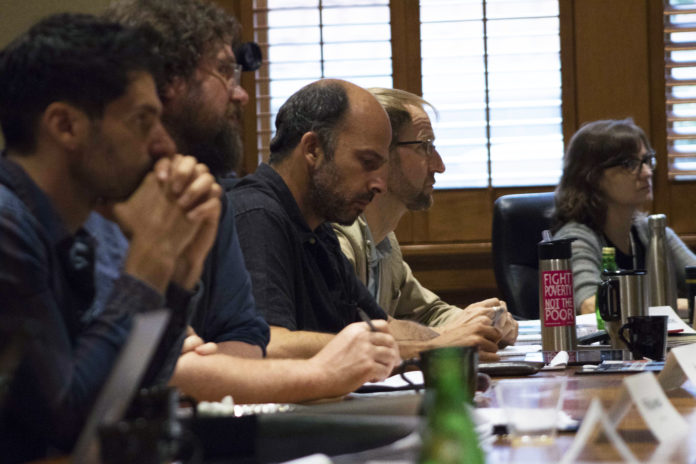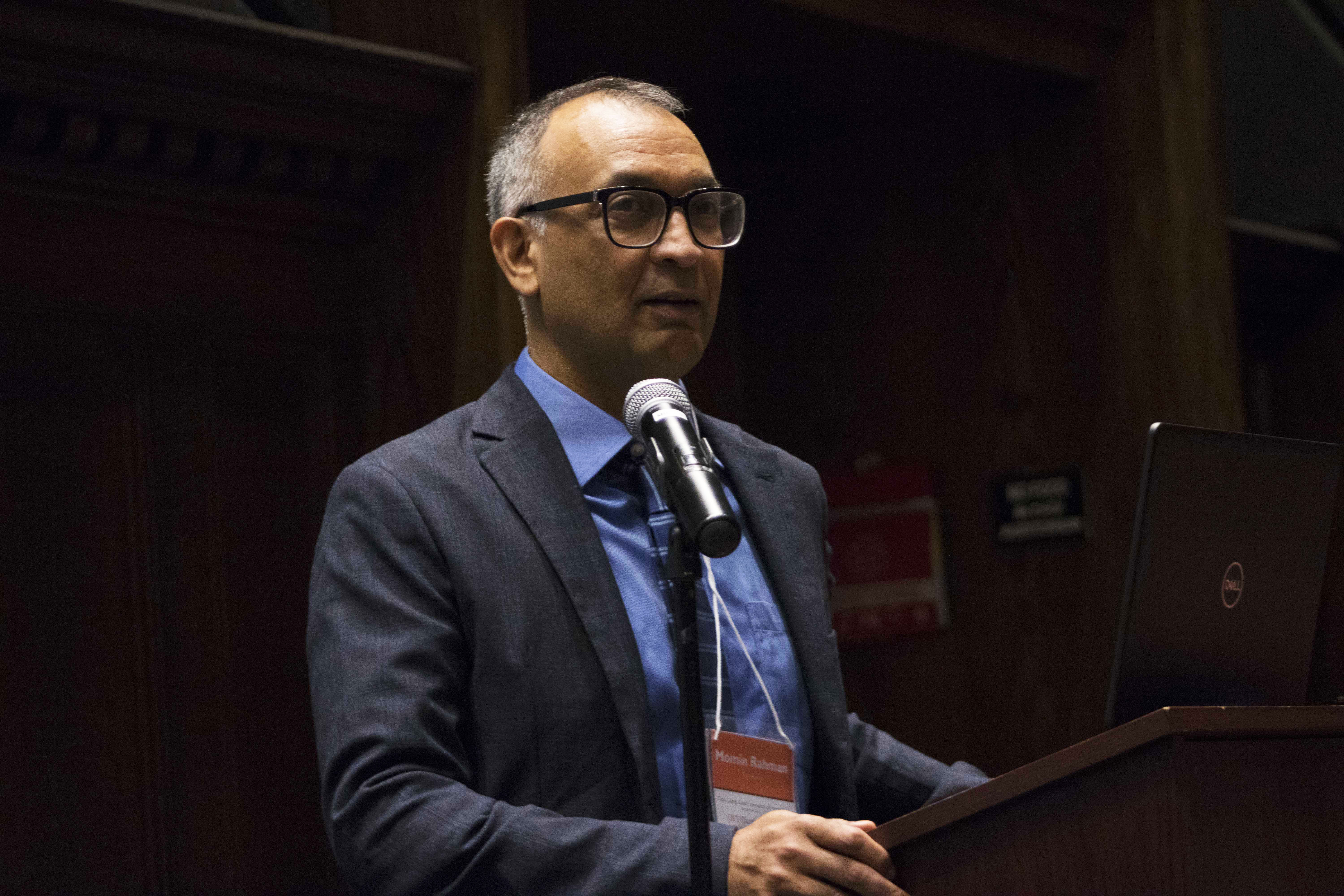
Occidental hosted a workshop focusing on issues surrounding human rights with the participation of scholars and practitioners from the Diplomacy & World Affairs (DWA) department, as well as from other parts of the U.S. and the world, Sept. 25–27. During this three-day event, participants presented original research, discussed related issues in a panel and exchanged ideas through Q&A sessions, according to one of the organizers, DWA professor Anthony Chase. The panelists also gave three public talks open to the student body. The events were co-sponsored by University of Southern California (USC), Indiana University and Arizona State University’s School of Social Transformation.
Chase said the workshop was divided into four panels, focusing on diverse topics including gender and intersectionality, sexuality, crisis and cosmopolitanism and local ownership of human rights. These topics were chosen because they are important areas in human rights that are currently being threatened, according to Chase.
“We’re in a moment of crisis in terms of human rights, and each of these topic areas are rights under attack. Rights in terms of gender, rights in terms of sexuality. Those attacks are taking place at a global level, and they’re also taking place at a local level,” Chase said. “The four panels were trying to speak to an intersecting issue of the ways in which rights of marginalized communities are being attacked.”
The workshop was invitation-only, and the events were jointly planned by professors at Occidental and the other co-sponsoring institutions.
“Over the last six months there has been this intense planning process in terms of invitations, writing overview document for the workshop, coming up with questions to structure the panels,” Chase said.
Caroline Diamond (sophomore) is a program assistant at the McKinnon Center for Global Affairs and a note-taker for the workshop panels. Kyler Parris (sophomore), Alejo Maggini (sophomore) and Stephanie Oyolu (sophomore) were also note-takers for the panels. Diamond said the note-takers recorded what was introduced and discussed in the panels for the purpose of compiling these notes into a book later.
“Eventually, the human rights workshop is going to be made into a book by some of the professors at Occidental,” Diamond said.
Introductory events took place the night of Sept. 25, and two panels were each held Sept. 26 and 27, according to Diamond.
“We had speakers and presenters from Malaysia, Colombia, Brazil, London,” Diamond said. “The first night we had a picnic dinner, went to a show, had a really nice evening getting to know everyone. One of the goals for this panel was not to be a typical conference. Instead, organizers want it to be a conversation.”
Chase said during the two days of panels, each panelist would present their perspective on the topic for ten minutes, followed by comments and more general discussions. Diamond said there were usually four speakers at each panel, and each would prepare a 1000-word long description introducing their research.
“Each [panelist] gave a speech about how they’re interested in this topic, how human rights relates to the topic, their ideas about that topic,” Diamond said. “And after that, it was a discussion, then summarize what had been said, and then opening up to a whole table for discussions.”
One of the panelists was Momin Rahman, professor of sociology at Trent University in Canada. In addition to participating in the panels, Rahman also gave a public lecture on queer Muslims’ challenges to existing frameworks of human rights Sept. 26 in Choi Auditorium.
“I’m here because I’m friends with professor Ayoub. We work in the same research networks, and also professor Chase,” Rahman said. “It’s been pretty good so far, this was just a talk I was doing to fill in the middle of all of the [panels].”

Rahman’s topic of queer Muslims and intersectionality was his area of expertise. He introduced his research on the life experiences of queer Muslims from different backgrounds in major cities around Canada, presenting key themes he found in his interviews and potential solutions to the issues and stigmas surrounding queer Muslims. Rahman said he enjoyed talking at Occidental.
“I felt the questions were good and stimulating, so that was nice. Sometimes when you do a talk to a class, it can be different, because they’re [students] used to a different professor, and you don’t necessarily know exactly what they’ve been learning,” Rahman said.
Reflecting on the entire three-day workshop, Chase said it was a positive experience.
“[It] was really a joy, it was inspirational. I think everybody felt like Occidental was a great place to hold the workshop,” Chase said. “I think the fact that we work with the City of LA on Sustainable Development Goals was a real focal point for the workshop.”
Parris said the opportunity for Occidental students to be involved in such events is unique.
“The fact that the students that are helping to put this event on are all Oxy students, they’re undergrads, that is just such a special opportunity to be able to talk and meet with these people,” Parris said.
The next iteration of this human rights workshop will go beyond inviting only academic professionals, according to Chase.
“There is an International Studies Association conference in Honolulu, we’re going to follow up on them,” Chase said. “What we’re thinking about is trying to engage with community partners … hopefully engage beyond academics, beyond professionals in the field with community partners.”
![]()


































